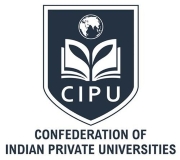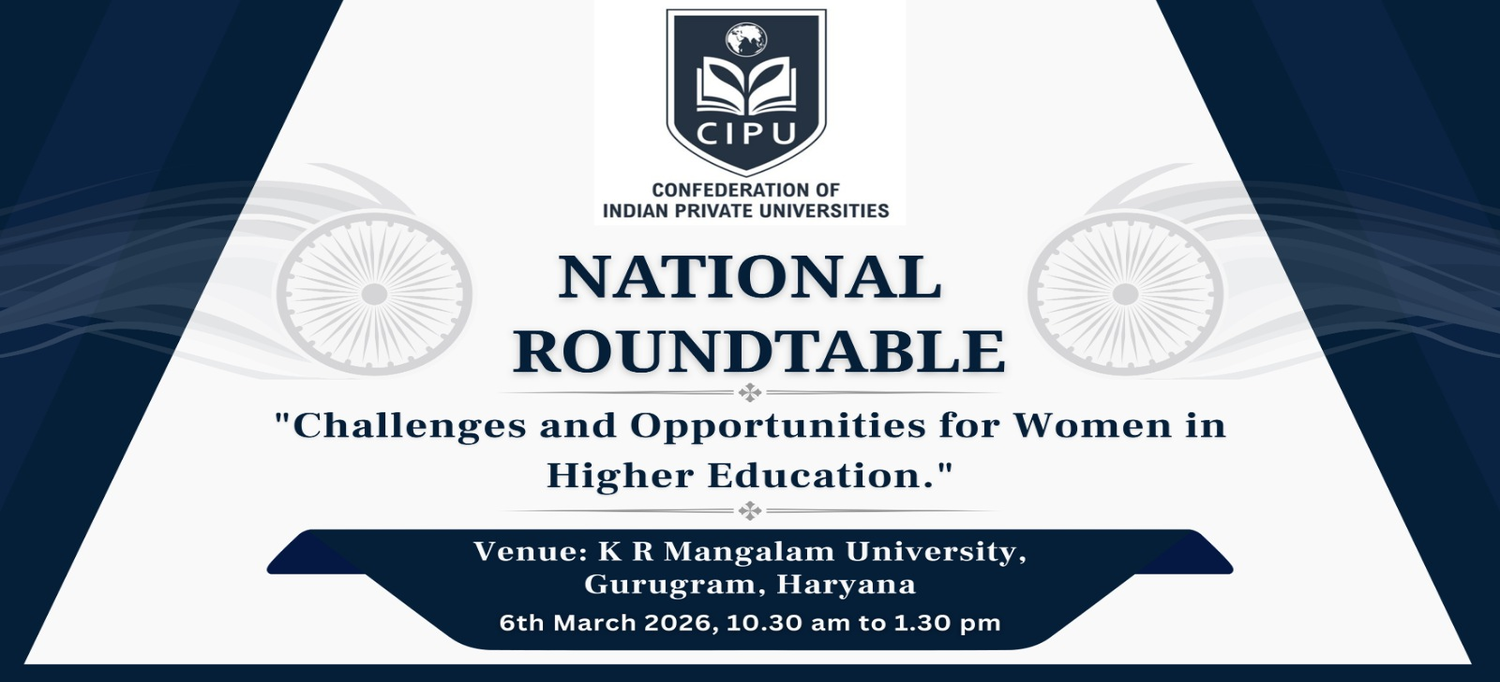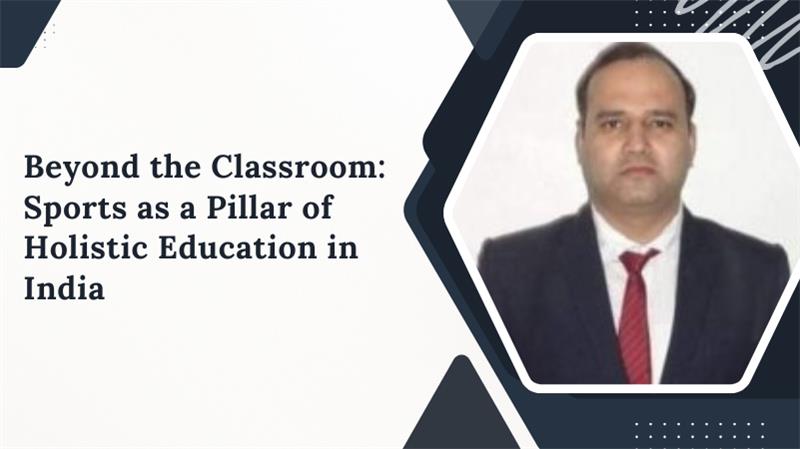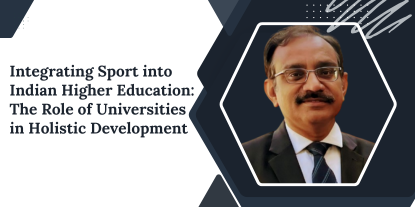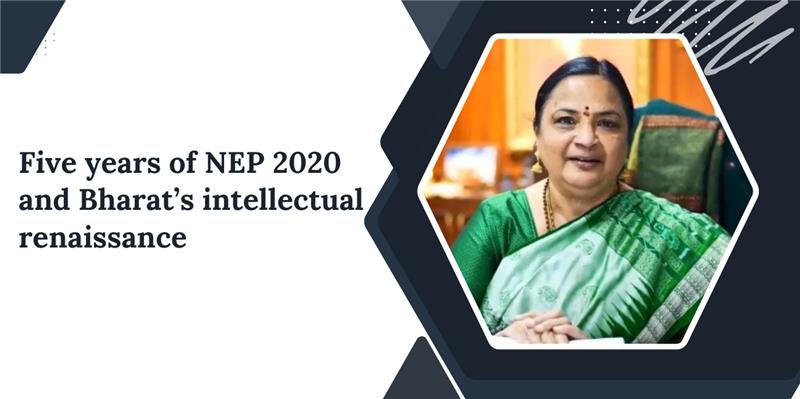
|
Prof. (Dr.) Santishree Dhulipudi Pandit
Vice Chancellor Jawaharlal Nehru University, New Delhi |
When the National Education Policy (NEP) 2020 was introduced, it was hailed as a landmark document that offered a comprehensive roadmap to overhaul India’s education system. Five years later, NEP continues to inspire both debate and innovation across the academic and policymaking landscape. However, what truly sets this policy apart is its philosophical depth, transformative vision, and the steadfast commitment of Prime Minister Narendra Modi, who has championed NEP 2020 not merely as a policy directive but as the foundation of a new educational ethos. He described NEP 2020 as “renaissance,” rather than a reform.
That distinction matters. Reforms are often technocratic, but renaissances are civilizational. They are driven by ideas, guided by values, and grounded in cultural self-confidence. This spirit has been evident in PM Modi’s consistent messaging: education must empower the learner, elevate the teacher, and reconnect India with its civilizational essence through the revival and integration of Indian Knowledge Systems (IKS).
A Vision In Motion
In higher education, NEP 2020 envisions a decisive shift from rigid, exam-driven structures to flexible, future-ready, and globally benchmarked institutions. It proposes a transformation wherein universities move beyond degree distribution to become centre's of research, innovation, and interdisciplinary inquiry. Modular programmes with multiple entry and exit points, the Academic Bank of Credits, and a focus on outcome-based learning are designed to foster academic mobility and student agency. The aim is to cultivate institutions that are not only repositories of knowledge but also active producers of ideas, capable of anticipating societal needs, partnering with industry, and contributing to national and global discourses. For this to happen, HEIs must embrace structural reform, invest in faculty development, and align themselves with a knowledge economy defined by excellence, inclusion, and ambition.
The policy’s emphasis on lifelong learning, experiential pedagogy, and creativity is especially timely in an era of technological acceleration. Initiatives like One Nation, One Subscription have already begun to democratise access to research. Yet, institutional culture takes time to shift. While the policy sets the direction, universities must show institutional leadership in converting vision into practice. The NEP identifies research-intensive universities as critical nodes in this transformation, whether centrally funded, state-run, or private. However, five years on, many of these institutions remain entangled in legacy structures and outdated priorities, focusing heavily on distance education, certificate programs, or metrics rather than breakthrough research or cutting-edge pedagogy.
Iks: Symbolic Mention Vs Substantive Mission
Among NEP’s most visionary features is the inclusion of the IKS, a long-overdue correction to decades of intellectual erasure. For centuries, India has been a civilizational knowledge power. The traditions of Shastrartha, philosophical inquiry, and scientific exploration, from Tolkappiam to Panini’s grammar to Aryabhata’s astronomy, remind us that Bharat was not merely a recipient of knowledge but a global generator of it. No Indian leader has pushed for IKS with as much clarity and conviction as Prime Minister Modi. From calling for renewed scholarship on the Sangam Age to emphasizing classical Indian knowledge in STEM and social sciences, the message is unambiguous: India’s rise must be intellectually rooted, not imitative. However, it is fair to ask: five years on, how far have we come in institutionalising IKS?
The NEP makes a strong beginning by including IKS across school and higher education, but its implementation remains uneven and underwhelming. The responsibility now rests with the academic community to convert this vision into curricula, research, translations, pedagogies, and interdisciplinary centres. Symbolic mention is not enough. IKS must become an epistemic alternative, not merely a civilizational footnote. Here, the leadership of Jawaharlal Nehru University (JNU) deserves particular mention. In July 2025, JNU hosted the first Annual International IKS Conference, drawing participation from leading scholars across disciplines, languages, and traditions.
The event set the tone for a new phase of academic engagement with IKS, not as ideological tokenism but as rigorous scholarship rooted in civilizational depth. National media coverage of the event underscored both its scholarly ambition and ideological seriousness. JNU’s initiative is an example of how a university can begin to set the intellectual architecture for a Viksit Bharat by encouraging original research, public discourse, and deep translation work across traditions. More such institutional leadership is needed across India’s higher education ecosystem.
Inclusion, Innovation, And Institutional Renewal
NEP’s vision will only be realised if universities reimagine their role beyond teaching factories. They must become hubs of research, incubation, and social relevance. This requires administrative and academic initiative. One area needing urgent attention is the Prime Minister’s Research Fellowship (PMRF) and related schemes. While the government has created enabling mechanisms, including AICTE’s new 1,000 PhD and 200 post-doctoral fellowships, the onus is now on Deans of R&D, VCs, and Directors to build robust partnerships with industry and society. There is no upper limit to the number of PM fellows, yet uptake remains modest. Why? Because academic institutions wait for industry to knock, instead of proactively collaborating. It should be noted that when academia shows initiative, corporate houses are more likely to support deserving scholars, often through CSR funds. Bodies like CII and FICCI can facilitate these connections. However, universities must recognise that innovation requires ambition, and that research linked to real-world problems attracts top talent. Another critical area is academic mobility and flexibility.
While the NEP rightly opens space for corporate experts as professors of practice, the policy must now enable reverse mobility, allowing distinguished academics to contribute to public policy, governance, diplomacy, and business strategy. Knowledge must flow both ways. A professor of political theory may make a fine ambassador; a Sanskritist or any of the classical regional languages may offer ethical frameworks to tech startups. The one-way traffic of expertise weakens our intellectual ecosystem. Furthermore, the NEP 2020 insists on holistic education. Yet, implementation shows worrying signs of marginalizing the humanities and social sciences.
While STEM expansion is critical for India’s economic aspirations, social sciences, philosophy, languages, and history are vital for societal harmony, ethical reasoning, and self-understanding. The future must not be divided between technology and tradition but synthesised across disciplines. The essence of IKS lies in this harmony between science and spirituality, rigour and reflection, truth and beauty. In marginalising the humanities, we risk betraying the very soul of NEP 2020. As Bharat becomes a Viksit Bharat, we need universities that produce employable graduates and thoughtful citizens, critical thinkers, and ethical leaders. Let us recall what the NEP envisions: inclusion, innovation, and impact.
Safeguarding A Civilizational Renaissance
The fifth anniversary of NEP 2020 is a moment of celebration and introspection. We must praise its architectural brilliance and honour the visionary leadership of PM Modi, who has infused it with urgency and civilizational pride. Yet, the NEP must not be reduced to slogans or symbolic implementation. It must be defended from dilution, tokenism, and mediocrity. At its heart, NEP is a call to reclaim education as the soul of a civilisation, not merely a tool of employment, but a path to self-realisation and societal transformation. Let us honour that call. Let us elevate IKS from vision to action, move beyond the rhetoric of reform, and embrace the renaissance NEP promises. In doing so, we do not just implement a policy. We shape the destiny of a nation with clarity, courage, and conviction.
